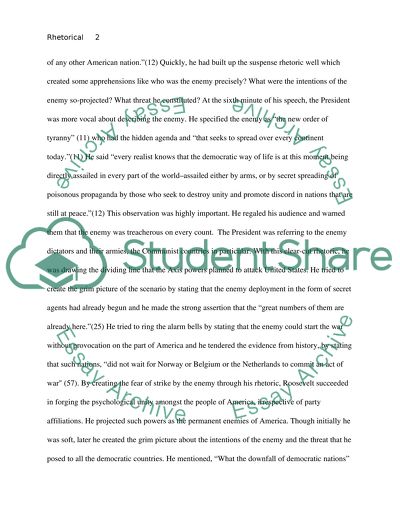Rhetorical Analysis The Four Freedoms Essay Example | Topics and Well Written Essays - 500 words. Retrieved from https://studentshare.org/miscellaneous/1610336-rhetorical-analysis-the-four-freedoms
Rhetorical Analysis The Four Freedoms Essay Example | Topics and Well Written Essays - 500 Words. https://studentshare.org/miscellaneous/1610336-rhetorical-analysis-the-four-freedoms.


